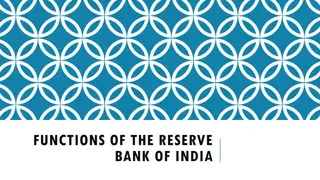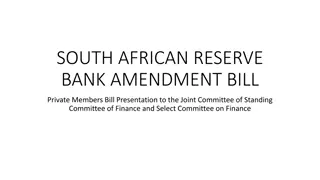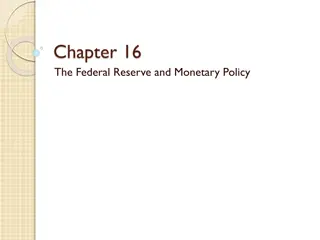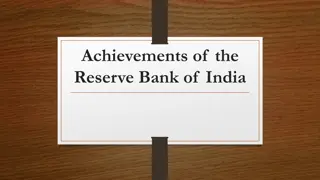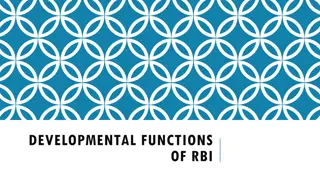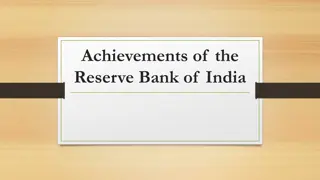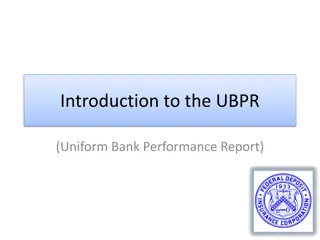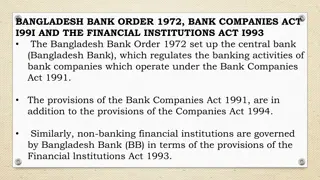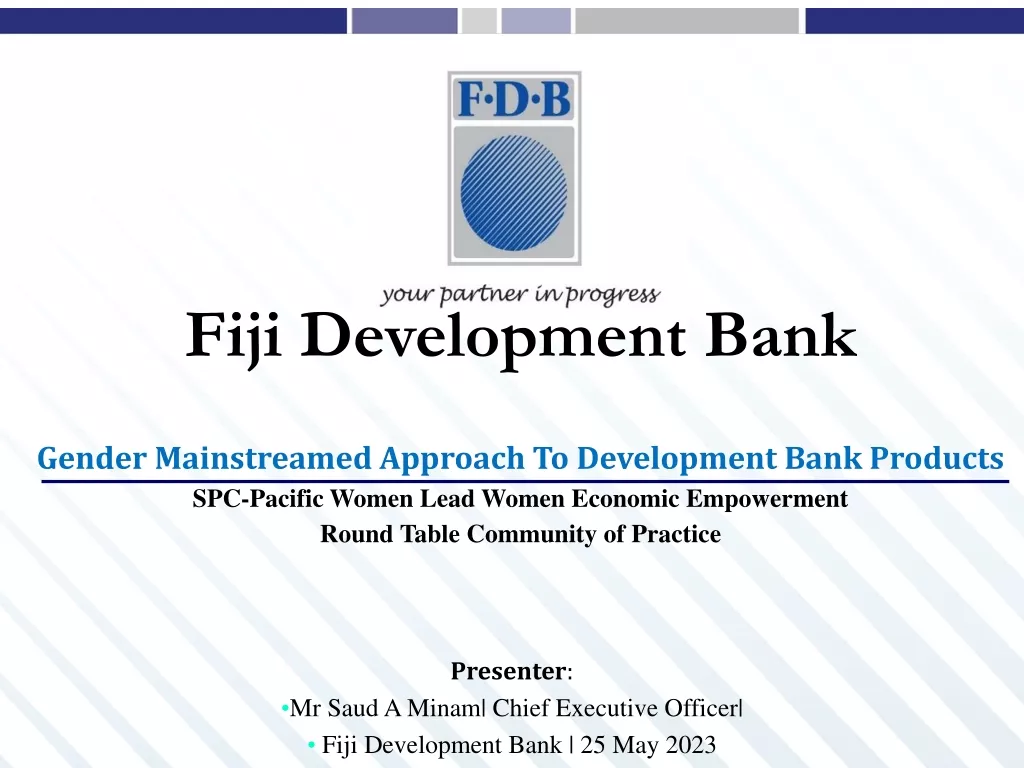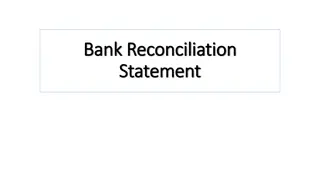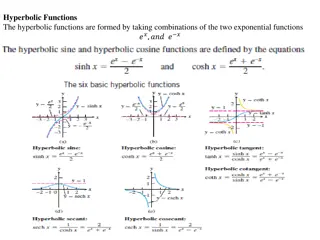Developmental Functions of Reserve Bank of India
Reserve Bank of India (RBI) plays a crucial role in promoting economic growth through various developmental functions. These include promoting agricultural finance, industrial finance, finance for exports, banking, and framing monetary policy. RBI works towards providing institutional credit to agriculture, supporting industrial development, encouraging exports, strengthening the banking structure, and regulating monetary policies.
Download Presentation

Please find below an Image/Link to download the presentation.
The content on the website is provided AS IS for your information and personal use only. It may not be sold, licensed, or shared on other websites without obtaining consent from the author. Download presentation by click this link. If you encounter any issues during the download, it is possible that the publisher has removed the file from their server.
E N D
Presentation Transcript
DEVELOPMENTAL FUNCTIONS OF RBI
II. DEVELOPMENTAL FUNCTIONS OF RBI Reserve Bank of India also performs certain developmental functions to promote the economic growth of the country. These developmental functions are as follows- 1. Promotion of Agricultural Finance: RBI has an Agricultural Credit department to conduct research regarding various problems of agricultural credit. RBI also advises the Central Government, state governments and co-operative societies on the various aspect of agricultural growth. In the Reserve Bank of India Act itself, it is recognised that it has special responsibility for providing institutional credit to agriculture and allied activities.
II. DEVELOPMENTAL FUNCTIONS OF RBI 2. Promotion of Industrial Finance: Reserve Bank provides significant financial help for the industrial development of the country. The commercial banks can take care of the working capital requirements of the industrial units. But industrial growth cannot be possible in the absence of medium and long term finance. The setting up of Industrial Development Bank of India (IDBI), Industrial Finance Corporation of India (IFCI), State Finance Corporations (SFC), Small Scale Industrial Development Corporations etc. to meet the long-term and medium term financial needs of industries are the important steps taken by RBI.
II. DEVELOPMENTAL FUNCTIONS OF RBI 3. Promotion of Finance for Exports: Reserve Bank of India has been playing important role through refinance to banks against export credit to encourage exports. Export finance is provided through various schemes e.g. the Bill Market Scheme, Export Bills Credit Schemes, Shipment Credit Scheme, Duty Drawback Credit Scheme. The Government of India established Export-Import Bank (EXIM) as an apex bank for financing the foreign trade. The main objective of this bank is to provide financial facilities to export Import trade.
II. DEVELOPMENTAL FUNCTIONS OF RBI 4. Promotion of Banking: The Reserve Bank of India has undertaken several measures to promote the banking structure of the country. The main steps undertaken by RBI in this direction are- (i) Strengthening of Banking Structure: The Reserve Bank has strengthened the banking structure of the country by eliminated the large number of weak, unsound or improperly managed banks. (ii) Extension of Banking Facilities: The banking facilities have been extended throughout the country, especially in small towns and rural areas so as to improve the geographical coverage of banks. (iii) Improvement of Functional Coverage: The functional coverage in favour of the priority sectors such as agriculture, small scale industries etc. has been extended by setting up Regional Rural Banks. (iv) Insurance of Deposits: The Deposit Insurance and Credit Guarantee Corporation has been set up to provide protection to depositors and guarantee cards to eligible institutions. (v) Development of Bill Market: The RBI has introduced several schemes with a view to encouraging the growth of a bill market in India.
II. DEVELOPMENTAL FUNCTIONS OF RBI 5. Framing Monetary Policy: The another very important function of Reserve Bank of India is the framing of monetary policy for the country. Monetary policy refers to that policy through which the central bank of the country controls (i) the supply of money, (ii) the availability of money, and (iii) cost of money i.e. rate of interest, in order to achieve a set of objectives oriented towards the growth and stability of the country.
CONCLUSION Therefore, monetary policy refers to the use of official instruments under the control of the Reserve Bank of India to regulate the availability, cost and use of money and credit with the aim of achieving optimum levels of output and employment, price stability, balance of payments equilibrium or any goals set by government.


